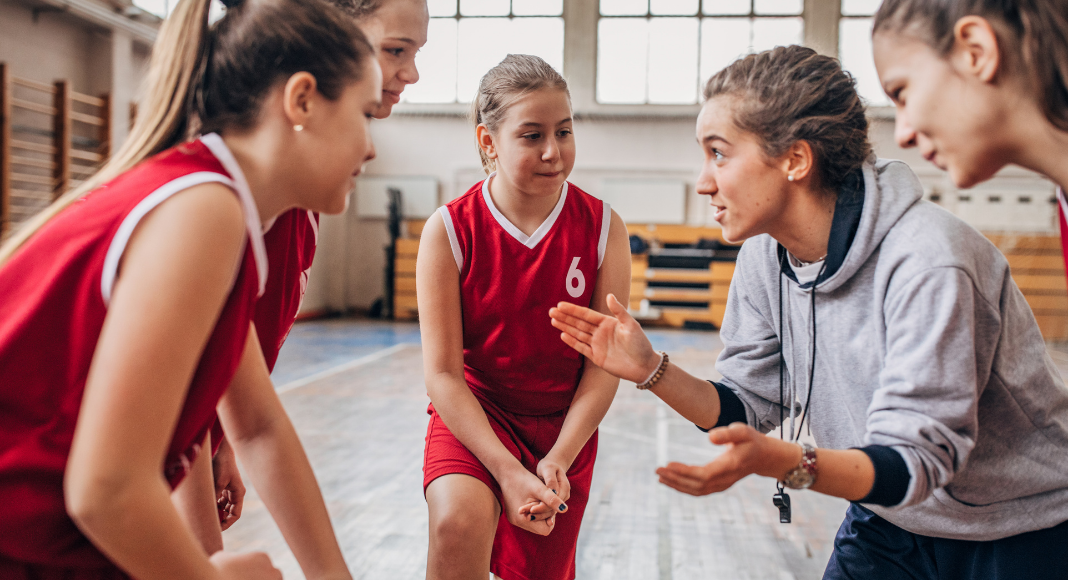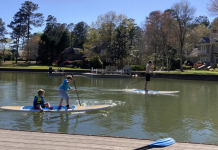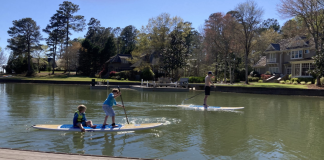“A mentor is not someone who walks ahead of us and tells us how they did it. A mentor is someone who walks alongside us to guide us on what we can do.”
– Simon Sinek
January is National Mentoring Month, as it is also the beginning of a new year. This year, make it a priority to identify your strengths and how you can use those to lead others. In addition, identify a mentor who can lead you, too.
According to mentoring.org, mentees have been linked to “improved academic, social, and economic prospects.” Mentors have seen an increase in leadership and management skills, expansion of their professional network, and an “empowered opportunity to give back to the community.” Research indicates that one in three young people will grow up without a mentor (youthmentor.org).

As an educational leader, I implore all professionals to both identify mentors to guide them towards improvement, and also to serve as mentors. I even ask parents to step up and serve as a mentor!
How to Become a Mentor
The first, and most important step, is determining whether you have the time to devote to an individual. Mentoring does not need to be time-consuming, but it should be intentional and meaningful. In addition, there is no prescribed program to becoming a mentor. The mentor/mentee relationship should be developed and cultivated naturally over time. If you believe that you can give at least one hour a week (or more!), mentoring may be for you!
The next step is to identify how you can best serve and what, if any, programs exist in your community to serve youth, young adults, or young professionals. Birmingham and the surrounding communities have multiple opportunities to serve. Schools, public libraries, family resource centers, local boys and girls clubs, and YMCA programs are great places to start but you can look within your personal network of friends and family, too. Maybe you enjoy gardening and there is a child in your neighborhood who has developed an interest in plants. Perhaps you have successfully sent your child off to college and a friend desperately seeks your expertise to help their high school student. There is probably someone around that you can serve in some way!
If you are interested in identifying opportunities to mentor in your community, go to mentor.org and complete this simple form. Once you identify the type of mentoring that you are interested in and the area in which you live, a list of opportunities will populate. Take time to explore all the options and do not hesitate to reach out to each site with specific questions.
What Makes a Great Mentor?
Authenticity, vulnerability, and experience make for the best mentors. A mentor should be someone who leads the way and sets good examples. A mentor admits to their missteps in life and demonstrates how to overcome or cope with those mistakes.
As parents, we are natural mentors to our children. We often lean on our parents and friends for advice, too. Technically, that is mentorship!

My Experience as a Mentor
Who Needs a Mentor?
The short answer is: everyone. Even adults can benefit from a mentor, whether that is someone to help navigate the professional world or personal life. Mentorship is not limited by age or where you are in life!
Types of Mentorships
I have served in a variety of capacities as a mentor. As a teacher, I served as a lead mentor for first-year teachers, as well as teachers who needed additional development and support.
My most memorable and the most impactful mentoring experience was when I was a “big sister” for two siblings while I was in college. That experience was transformative—so much so that it inspired me to give back to my community upon graduation. Three years into my career, I couldn’t stop thinking about “Rock” and “Sasha,” and the impact that I could have on other children. I decided to go back to school to study education and educational leadership in order to serve more children in our state.
But not all mentorships end with a transformed state of mind or new careers. Once, I mentored a recent high school graduate who is interested in working with a non-profit after college. She has shadowed a few of my meetings, received insight into grant writing, and had opportunities to collaborate on grants and program development. Yet, sometimes, the match is just not there, and it feels like work instead of enjoyment or service. Time-commitment with a desire to learn and lead is required. If either person does not devote the time or desire, the mentorship will be a bust.
Remember: Mentorship should not involve dictating action. Mentorship is guidance through one’s personal strengths and abilities.











